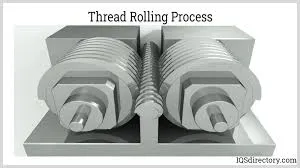
-
 Afrikaans
Afrikaans -
 Albanian
Albanian -
 Amharic
Amharic -
 Arabic
Arabic -
 Armenian
Armenian -
 Azerbaijani
Azerbaijani -
 Basque
Basque -
 Belarusian
Belarusian -
 Bengali
Bengali -
 Bosnian
Bosnian -
 Bulgarian
Bulgarian -
 Catalan
Catalan -
 Cebuano
Cebuano -
 Corsican
Corsican -
 Croatian
Croatian -
 Czech
Czech -
 Danish
Danish -
 Dutch
Dutch -
 English
English -
 Esperanto
Esperanto -
 Estonian
Estonian -
 Finnish
Finnish -
 French
French -
 Frisian
Frisian -
 Galician
Galician -
 Georgian
Georgian -
 German
German -
 Greek
Greek -
 Gujarati
Gujarati -
 Haitian Creole
Haitian Creole -
 hausa
hausa -
 hawaiian
hawaiian -
 Hebrew
Hebrew -
 Hindi
Hindi -
 Miao
Miao -
 Hungarian
Hungarian -
 Icelandic
Icelandic -
 igbo
igbo -
 Indonesian
Indonesian -
 irish
irish -
 Italian
Italian -
 Japanese
Japanese -
 Javanese
Javanese -
 Kannada
Kannada -
 kazakh
kazakh -
 Khmer
Khmer -
 Rwandese
Rwandese -
 Korean
Korean -
 Kurdish
Kurdish -
 Kyrgyz
Kyrgyz -
 Lao
Lao -
 Latin
Latin -
 Latvian
Latvian -
 Lithuanian
Lithuanian -
 Luxembourgish
Luxembourgish -
 Macedonian
Macedonian -
 Malgashi
Malgashi -
 Malay
Malay -
 Malayalam
Malayalam -
 Maltese
Maltese -
 Maori
Maori -
 Marathi
Marathi -
 Mongolian
Mongolian -
 Myanmar
Myanmar -
 Nepali
Nepali -
 Norwegian
Norwegian -
 Norwegian
Norwegian -
 Occitan
Occitan -
 Pashto
Pashto -
 Persian
Persian -
 Polish
Polish -
 Portuguese
Portuguese -
 Punjabi
Punjabi -
 Romanian
Romanian -
 Russian
Russian -
 Samoan
Samoan -
 Scottish Gaelic
Scottish Gaelic -
 Serbian
Serbian -
 Sesotho
Sesotho -
 Shona
Shona -
 Sindhi
Sindhi -
 Sinhala
Sinhala -
 Slovak
Slovak -
 Slovenian
Slovenian -
 Somali
Somali -
 Spanish
Spanish -
 Sundanese
Sundanese -
 Swahili
Swahili -
 Swedish
Swedish -
 Tagalog
Tagalog -
 Tajik
Tajik -
 Tamil
Tamil -
 Tatar
Tatar -
 Telugu
Telugu -
 Thai
Thai -
 Turkish
Turkish -
 Turkmen
Turkmen -
 Ukrainian
Ukrainian -
 Urdu
Urdu -
 Uighur
Uighur -
 Uzbek
Uzbek -
 Vietnamese
Vietnamese -
 Welsh
Welsh -
 Bantu
Bantu -
 Yiddish
Yiddish -
 Yoruba
Yoruba -
 Zulu
Zulu
custom thread rolling machine video
The Evolution and Efficiency of Custom Thread Rolling Machines
In the world of manufacturing, precision and efficiency are crucial to success. One of the technologies that has significantly revolutionized the production of threaded fasteners is the thread rolling machine. This machine, particularly in its custom variations, plays a critical role in meeting the diverse needs of various industries, including automotive, aerospace, and construction.
Understanding Thread Rolling Technology
Thread rolling is a specialized manufacturing process used to create threads on cylindrical materials. Unlike traditional cutting methods, this process involves deforming the material to form the desired thread shape. The primary advantage of thread rolling is that it enhances the strength and durability of the threads while minimizing waste material. The process is typically quicker and more efficient than machining, making it a popular choice for producing high-volume parts.
Custom Thread Rolling Machines
The importance of custom thread rolling machines cannot be overstated. These machines can be tailored to meet specific requirements, which is essential in an industry where standardization does not always apply. Customization might involve changes in size, thread profile, and even material specifications, allowing manufacturers to produce a unique range of fasteners tailored to client needs.
For example, in industries where specialized fastening solutions are essential—such as in aerospace for lightweight components or in automotive manufacturing for high-performance parts—custom thread rolling machines can create precisely the right specifications. This capability enhances the overall quality of the final products.
The Advantages of Using Thread Rolling Machines
1. Enhanced Strength Thread rolling processes produce work-hardened threads. The continuous flow of metal during the rolling process leads to a denser and stronger thread compared to those produced by conventional cutting methods.
custom thread rolling machine video

2. Dimensional Accuracy Custom thread rolling machines can achieve tighter tolerances, ensuring that the threads have the exact dimensions required for their specific application.
3. Surface Finish The rolling process generally results in a superior surface finish. This can reduce the need for additional finishing processes, saving time and costs.
4. Material Efficiency The thread rolling process produces minimal waste as it does not cut away material, making it a more sustainable option compared to traditional machining techniques.
5. Increased Production Speeds For high-volume production, these machines offer faster cycle times, allowing manufacturers to meet tight deadlines and rapid market demands.
Video Demonstration of Custom Thread Rolling Machines
To truly appreciate the intricacies of custom thread rolling machines, one can refer to various available videos online. These visual representations provide a better understanding of the technology in action. They showcase the machines in operation, demonstrate their flexibility in handling various materials, and highlight the precision achieved in the threading process.
In these videos, viewers can observe the setup process, which often involves configuring the machine for particular thread specifications. Additionally, watching the thread formation in real-time illustrates the difference between rolling and cutting, as well as the high production speeds that can be achieved.
Conclusion
Custom thread rolling machines have fundamentally changed how threaded fasteners are produced in modern manufacturing. Their efficiency, coupled with the ability to produce tailored solutions for specific applications, makes them invaluable in various sectors. As industries continue to evolve and demand more specialized products, the role of custom thread rolling technology will undoubtedly expand, driving innovation and efficiency in fastener production. With advancements in technology and automation, the future looks promising for this vital manufacturing process.
